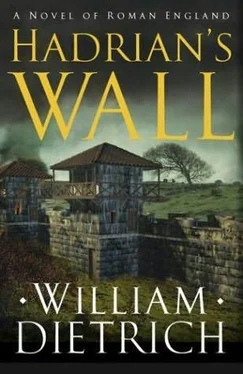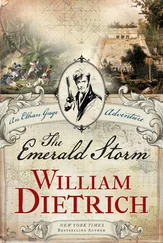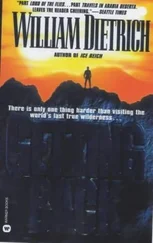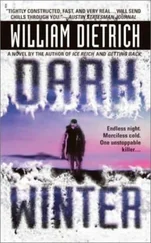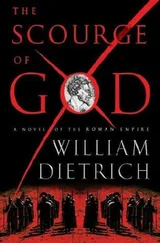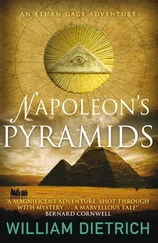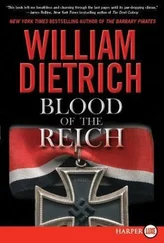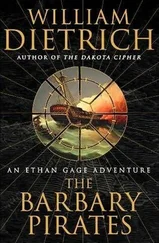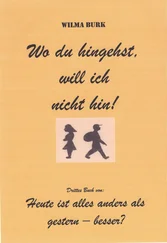William Dietrich - Hadrian's wall
Здесь есть возможность читать онлайн «William Dietrich - Hadrian's wall» весь текст электронной книги совершенно бесплатно (целиком полную версию без сокращений). В некоторых случаях можно слушать аудио, скачать через торрент в формате fb2 и присутствует краткое содержание. Жанр: Исторические приключения, на английском языке. Описание произведения, (предисловие) а так же отзывы посетителей доступны на портале библиотеки ЛибКат.
- Название:Hadrian's wall
- Автор:
- Жанр:
- Год:неизвестен
- ISBN:нет данных
- Рейтинг книги:4 / 5. Голосов: 1
-
Избранное:Добавить в избранное
- Отзывы:
-
Ваша оценка:
- 80
- 1
- 2
- 3
- 4
- 5
Hadrian's wall: краткое содержание, описание и аннотация
Предлагаем к чтению аннотацию, описание, краткое содержание или предисловие (зависит от того, что написал сам автор книги «Hadrian's wall»). Если вы не нашли необходимую информацию о книге — напишите в комментариях, мы постараемся отыскать её.
Hadrian's wall — читать онлайн бесплатно полную книгу (весь текст) целиком
Ниже представлен текст книги, разбитый по страницам. Система сохранения места последней прочитанной страницы, позволяет с удобством читать онлайн бесплатно книгу «Hadrian's wall», без необходимости каждый раз заново искать на чём Вы остановились. Поставьте закладку, и сможете в любой момент перейти на страницу, на которой закончили чтение.
Интервал:
Закладка:
"Yes, I am interviewing him next. And this soldier Titus. They are waiting while I finish with you."
She looks at me. "Please, master, I've answered everything you've asked. Will you not take pity on me?"
"And do what?"
"Get me out of my cell."
"I'll speak to the commander about moving you because you've been useful. But I'm not ready to make a decision on your permanent fate. I'm speaking to many people."
She looks at me levelly. "In the end you'll want me with you."
I mistake this for further seduction. "In my bed?"
"No, in the wood, where Valeria has gone. Where you'll have to go too."
IX
The villa of Quintus Maxus, the first private residence that Valeria's party was to rest at in Britannia, was three days' journey north of Londinium. The road they followed was, in the Roman manner, a spear shaft thrust across hill and dale that sliced through ancient property lines and bridged streams, bogs, and wooded gullies. The highway was well maintained near Londinium, its tight-fitting stones cushioned with gravel and its stout puncheons rumbling like a drum. Grassy margins were cleared to the distance of a bowshot to discourage brigands, and the cavalry escort rode there instead of on the highway, to save the hooves of their unshod horses. But the farther Valeria's escort ventured from the capital, the more indifferent maintenance became. Holes went unrepaired, gravel was scant, brush invaded the shoulders, and frost heaved the stones.
Money, Galba told her as the cart jounced. There was never enough.
Contrasting to this Latin precision were the walls that marked the boundaries of Briton farms. These surrendered to topography and curved along the undulating terrain with the organic symmetry of cells. The result was a honeycomb, cut by Roman roads like a knife.
As an official party the wedding entourage had right-of-way over all but military units or imperial messengers. Private travelers, peddlers, wool merchants, cattle drovers, pilgrims, and hay wagons moved to the grassy swale as Valeria's procession passed, eyes peeking curiously at the woman on the high seat in the column's middle.
A bright blue canopy shielded her from sun or rain, and a scarlet cloak was clasped round her neck. She sat straight, her dark hair lustrous at the margin of her hood, her eyes bright, her smile brave, her figure trim and rounded, her garments a display of Egyptian linens, Asian silks, and Roman embroideries. A senator's daughter! In rural Britannia, she was as exotic as a unicorn or giraffe. At Petrianis she'd be a kind of queen, she supposed. She smiled graciously and studied these people as they studied her, speculating on their quiet, secret lives. Did they envy her?
She looked forward to the hospitality of Quintus Maxus. She could learn from the province's aristocracy, and the manor owner would earn status by entertaining not just the future wife of a praefectus, but the daughter of a senator. His feast would be a display of his best because the. empire was unified by ten thousand complicated alliances, where advancement revolved around family, friends, clients, loyalty, and long-owed favor. Every invitation was calculated, and every acceptance was strategic.
Galba was taciturn on the road north, brooking no dissent and joined to his horse like a centaur, his belt of rings jingling on his hip. While command came easily to him, companionability did not. He'd answer when asked but otherwise offered little conversation. This reticence made Valeria more curious, not less, of course. There was a peculiar restlessness to him, she thought, which left him brooding and mysterious.
"I'm told you're a Thracian, tribune," she prompted once as his constant prowling back and forth past their procession brought him alongside.
He looked wary. It was bold for a woman to initiate conversation. "I was."
"A long way from home."
"No." He took a moment to elaborate. "The Wall is my home now. You're the one who's a long way away."
So to him she was the outsider. Interesting. "What's it like in Thrace?"
"I left twenty years ago."
"But surely you have memories." Even as she said it, she realized how difficult it was to picture Galba as a child.
"Thrace is grass. Horses thrive there."
"A beautiful place?"
"A poor one. A frontier, like where you're going."
"And you a frontiersman."
"So it would seem." He was looking straight ahead now, as if to glance at her might reveal weakness. Galba, she suspected, was a man terrified of weakness. Perhaps, like many strong men, he was terrified of women.
"But you're a Roman as well," she went on, trying to draw him out. If she could understand Galba, perhaps she could understand Britannia. If she was to prevail in this province, she had to learn its mood. As a girl her studies had included little of the geography taught to boys, but she'd always been curious. Sometimes as a child she had hidden behind the tapestries of her father's dining room and listened to the men shouting opinions about lands, wars, and treaties in places she could scarcely imagine. Now she was beginning to see them for herself.
"I'm a Roman soldier. I've never seen Rome."
So she had experience that he did not. "Do you wish to?"
He briefly met her gaze, and for just a moment his eyes betrayed a look of longing. For Rome? Home? Friendship? Then he turned away again. "I wanted to once. Now, I don't think so. Rome, I suspect, would disappoint me."
She tried to tease him. "I thought all roads led to Rome."
"My Rome is the border, lady. My ambition is the Petriana cavalry. It may seem modest to you, but it's all I have."
She understood his meaning instantly, and felt guilty. He was escorting the cause of his own demotion! "And my future husband now has command. You must resent us." Was he loyal? Could Marcus trust him?
"Duty must never be resented, lady." It was a rote response. "Besides, fortune turns many ways." Then he galloped ahead.
Sometimes, when they stopped for the night at the public mansiones spaced every twenty-five miles, she caught him eyeing her from a distance. Just why was unclear. She was used to having men look at her, and Galba occasionally let his gaze linger enough to reassure her that he wasn't immune to her beauty. Yet his look was more complicated than that. It was as if he hadn't yet made up his mind about her. She'd become confident she could read the mind of the boys she'd flirted with in Rome, outguessing their strategies and manipulating their longings. But she couldn't tell if this grizzled, powerful man was intrigued by her or annoyed, impressed by her rank or dismissive of her gender and youth.
"That's just the way of him," the soldier Titus told her. "He looks at everyone with the glint of a hawk and the guile of a merchant. He's the kind with little he needs saying and less need of what others say. Don't be insulted; he's that way with everybody."
"The silences make him more formidable, somehow."
"Don't think he doesn't know it, lady."
"But is he really as fearsome as he seems?"
"Have you seen the rings on his belt?"
She smiled. "I can always hear him coming, like little bells!"
"Those are trophies from the men he's killed."
She was shocked. "You're joking!"
"Forty of them. If you want to understand Galba, look at his waist."
The original Celtic tapestry of meandering pathways and undulating fields had been drawn by a culture with no need for highways or towns, its patchwork a dazzling green. Pastures and grain fields were interspersed with small orchards, vegetable gardens, and wooded coppices of alder and birch. Larger woodlots filled hollows and crowned hills. At the junction of fieldstone walls were Celtic farmsteads, a cluster of oval or rectangular stone corrals enclosing two or three round houses with peaked thatch roofs. Here lived patriarch and matron, children and grandchildren, uncles and cousins, maids and midwives, all coexisting with pigs, goats, a milk cow, dogs, chickens, geese, and rodents in a trampled world of straw, manure, and planted flowers. The grays and greens of their world were punctuated by bright banners at the doors and hoisted weavings on the rooftops, adding blossom to the breeze. Sometimes the Britons themselves donned rainbow colors like Roman entertainers, as if to combat their country's gloom. From a distance they reminded Valeria of butterflies flitting on a velvet meadow, the reds, blues, and yellows quickening her heart.
Читать дальшеИнтервал:
Закладка:
Похожие книги на «Hadrian's wall»
Представляем Вашему вниманию похожие книги на «Hadrian's wall» списком для выбора. Мы отобрали схожую по названию и смыслу литературу в надежде предоставить читателям больше вариантов отыскать новые, интересные, ещё непрочитанные произведения.
Обсуждение, отзывы о книге «Hadrian's wall» и просто собственные мнения читателей. Оставьте ваши комментарии, напишите, что Вы думаете о произведении, его смысле или главных героях. Укажите что конкретно понравилось, а что нет, и почему Вы так считаете.
